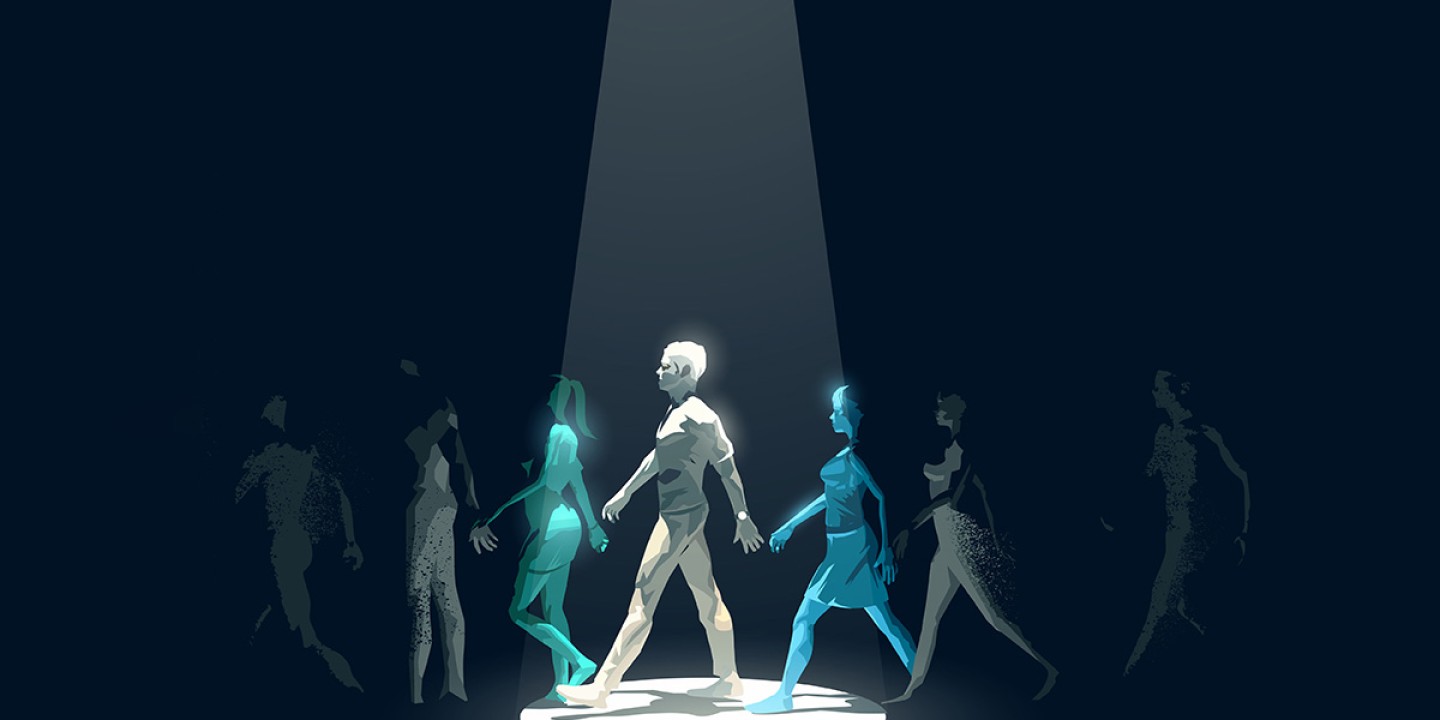Reckoning with our messiah complexes
The vulnerability of the newborn Christ challenges our inclination to play God.

A New Yorker cartoon depicts a couple of men in first-century garb beside a pack mule. “Right now, I’m his apostle,” one says to the other, “but my dream is to someday be my own Messiah.” The idea of a messiah complex has reached the bumper sticker world as well: “Honk if you are Jesus.” The term itself isn’t clinical in nature as much as it’s a category of religious delusion that can show up in individuals suffering perceptions of grandeur.
Sixty-two years ago, three male patients with paranoid schizophrenia and delusional disorder at Ypsilanti State Hospital in Michigan were intensively studied for their own messiah complexes. Each believed that he was the physical reincarnation of Jesus Christ. Their mistaken perception of reality would have presented little problem had it not been for a social psychologist named Milton Rokeach who, for the better part of two years, manipulated their lives through a study with questionable ethics.
Read our latest issue or browse back issues.
Using various methods of entrapment and deception, Rokeach sought to pit these three men against each other, in hopes that they might cure one another of their delusion. They were assigned adjacent beds, seats next to each other in the cafeteria, and jobs in the laundry room at the same time. Fights and rants regularly broke out amid daylong arguments. One of the men would claim, “I’m the Messiah, the Son of God. I am on a mission. I was sent here to save the earth.” “How do you know?” Rokeach would ask. “God told me.” That’s when another one of the patients would pipe up: “I never told you any such thing.”
Joseph, Clyde, and Leon never stopped believing they were each the Christ. But despite the study’s psychological torment, they became friends, learned to empathize with one another, and gave each other the chance to keep their own belief.
In 1964, Rokeach summarized his findings in The Three Christs of Ypsilanti. It would be another 20 years, however, before he acknowledged his ethical lapses. In the afterword of a later edition, he writes, “While I had failed to cure the three Christs of their delusions, they had succeeded in curing me of mine—of my God-like delusion that I could change them by omnipotently . . . rearranging their daily lives. . . . I really had no right, even in the name of science, to play God and interfere around-the-clock with their daily lives.”
One need not be a social scientist or a person suffering grandiose delusions in order to play God. As it turns out, any of us is capable of that distortion. In fact, the more comfortable we become with our financial security, the more competent we are in our workplaces, and the more confidently we rely on our own charm and ingenuity, the easier it becomes to embrace a kind of omnipotence. Some days, we ought to pity God for having to try to wrestle any humility out of us.
But God is wiser than we know. Once God hits on the idea of putting the vulnerability of a newborn up against our own invulnerability, our inclination to play God suffers a permanent reckoning. The incarnation was a brilliant move. For what infant holds any delusion about its own omnipotence? We’ve been trying to learn from that peculiar gift of vulnerability ever since, which is why we need Christmas all over again.
A version of this article appears in the print edition under the title “Playing God.”






